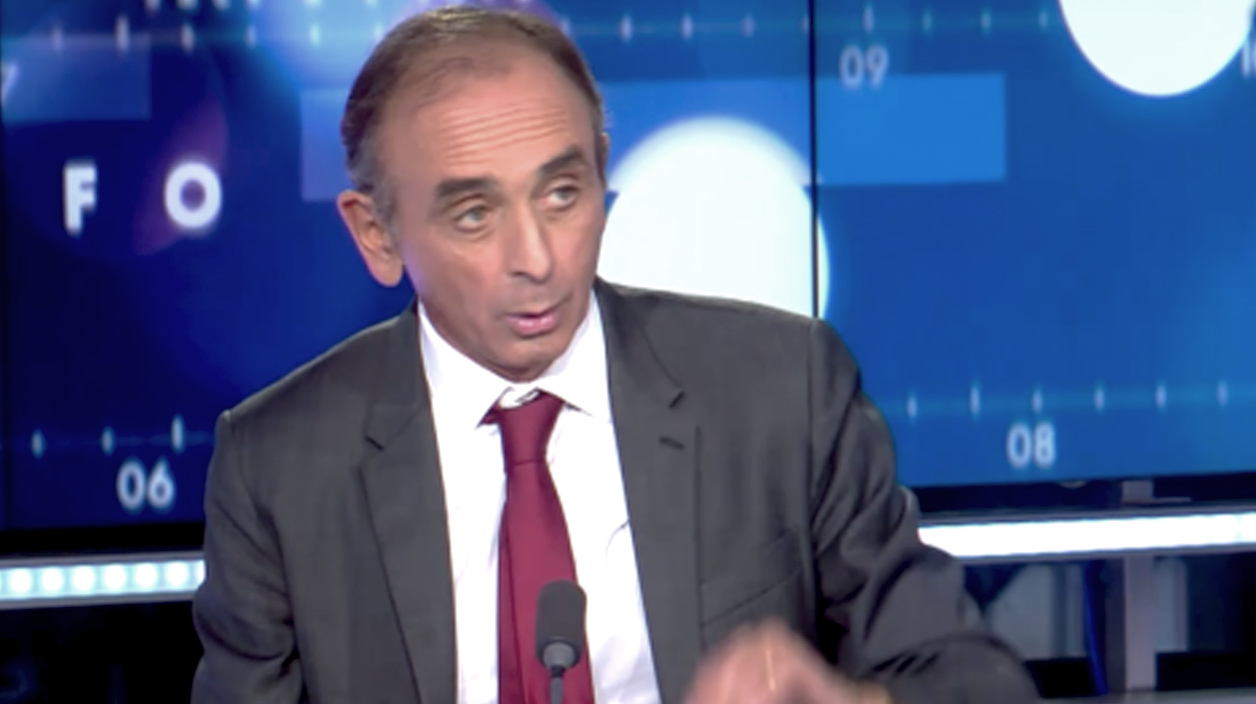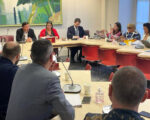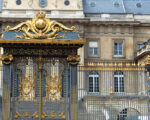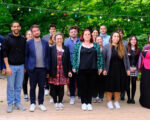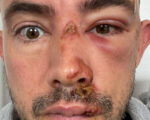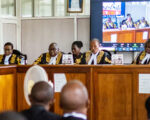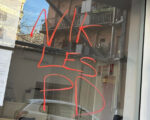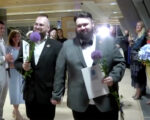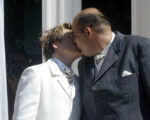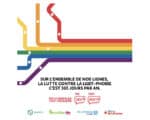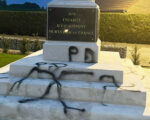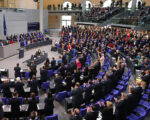Paul Ewart est un jeune expatrié, qui a vécu plusieurs années à Dubaï, où il a travaillé pour un magazine people. Avant son arrivée, il raconte que ses amis le taquinaient « sur les années d’abstinence et de célibat forcé qui l’attendaient », malgré l’ouverture relative de la ville par rapport au reste de la région. Désormais de retour à Sydney, il a témoigné sur le site australien The News, relayé par Courrier International.
 « Je n’ai aucune illusion sur l’attitude officielle des autorités de Dubaï en ce qui concerne l’homosexualité. Peu après mon arrivée, et afin d’obtenir un visa de travail, j’ai dû passer un test VIH », tout expat’ séropositif étant immédiatement renvoyé dans son pays, comme toute personne atteinte de tuberculose, explique-t-il.
« Je n’ai aucune illusion sur l’attitude officielle des autorités de Dubaï en ce qui concerne l’homosexualité. Peu après mon arrivée, et afin d’obtenir un visa de travail, j’ai dû passer un test VIH », tout expat’ séropositif étant immédiatement renvoyé dans son pays, comme toute personne atteinte de tuberculose, explique-t-il.
On lui aura d’ailleurs fait savoir, et dans « des termes très clair », qu’il ne devait pas non plus faire référence à l’homosexualité dans ses articles « ce qui était particulièrement difficile quand on écrit sur des célébrités, sur la culture pop et sur la mode. »
Pourtant, malgré ces conditions, il se rend compte, grâce à des amis gays rencontrés sur place, qu’il existe une véritable communauté LGBT, « l’une des plus multiculturelles et diverses du monde, du fait de la très importante population de jeunes cols blancs expatriés. »
De très nombreuses boîtes de nuit, des soirées dans des villas privées, des programmes pour contourner la censure et installer des applications de rencontre sur son téléphone portable, « tout cela existe et est très répandu » dans l’émirat, qui malgré une ligne draconienne, « tient lieu de havre de liberté », ajoute Paul.
Il insiste toutefois sur la « prudence » à observer, les rapprochements et relations homosexuelles étant passibles de dix ans de prison, comme le rappelait déjà l’association ILGA : « Les nombreuses descentes de police dans les clubs et soirées gays font souvent la Une, mais la réalité des persécutions est bien pire. »
Pour les victimes de ce harcèlement, « les conséquences de leur sexualité dépendent de leur nationalité. Les étrangers sont souvent incarcérés puis expulsés, tandis que les locaux peuvent être aussi soumis à des traitements hormonaux pour régler leur « problème ». »
Anne V. Besnard
stophomophobie.com
[spacer]
>> « What it’s like to be a gay man in Dubai »
It’s 2am and the club is packed with a sea of sweaty, gay men getting their groove on to a Madonna classic — and I’m one of them.
After an all-day drinking session, followed by a spot of impromptu karaoke, during which I made friends with a lovely lesbian couple (we bonded over our love of ‘80s power ballads) I’ve ended up at this underground hotspot.
Nothing strange here you might think, I mean, there are gay clubs the world over, right? But what makes this unusual is that I’m not in the relatively liberal West; I’m in Dubai.
A province of the United Arab Emirates governed by a dictatorial royal family and a tourism hotspot attracting the gaze of the world thanks to its constant sunshine and headline-grabbing world’s « biggest » and « tallest » buildings, shopping malls and man-made islands.
Like Las Vegas, Dubai was built in a desert from nothing and like Vegas, Dubai (in the Arab world anyway) is known as sin city.
Despite being conservative by Western standards, this is where alcohol and sex-starved Arabs flock to in droves to get their fix — and that includes the gays.
I arrived in the city during the height of summer to take a section editor job at a large glossy magazine. My friends back home in London joked about my forthcoming years of celibacy and, though I laughed along with them at the time, as the plane touched down on the tarmac of Dubai’s airport my bravado faltered.
From the get go, I’m under no illusions about Dubai’s official attitude to homosexuality. Soon after arriving in order to secure a working visa I’m tested for HIV (any expat with the disease is immediately repatriated, alongside anyone found to have tuberculosis).
At my publishing company, I’m told in no uncertain terms to avoid using gay references within stories which — when writing celebrity, pop culture and fashion — was particularly difficult.
On the surface conditions for gay Dubaiians might seem bleak, but thanks to some quickly acquired gay friends I learn quickly that, despite the legalities, a vibrant gay scene flourishes. In fact, thanks to a huge population of young professional expats, the scene is one of the most multicultural and diverse around.
I break my Dubai gay club virginity at one of the most popular hangouts. Entering via an underground carpark on a Saturday evening, my male friend and I encounter the uneven door policies that are rife throughout gay venues (a vague attempt to curb gay activity).
Men arriving solo or in all-male groups pay more, queue separately and are often denied entry altogether.
Inside, the place is packed to the rafters with a United Nations of men: butch Lebanese and their Asian playthings mingle with trendily dressed Europeans and a smatterings of Australians, Americans, Canadians, alongside Indians and Pakistanis.
He was under no illusions about the Emirate’s attitude to homosexuality.Source:Supplied
All gyrating together creating a sea of bulging biceps and tank tops.
A Syrian man moves close to me on the dance floor, touching my waist and pushing against me in a way that made his intentions very clear. Passing on that offer, I quickly meet an equally forward New Zealander working as crew for Emirates Airlines (where a large portion of the city’s gay contingent work).
Several weekends later I find a similar scene at another club.
I also quickly learn that, if you know the right people, there are a raft of unofficial parties going on in plush villas across the emirate. And while the UAE employs strict censors to prevent access to pornography or dating websites, an easily downloadable program bypasses censors to allow access to dating and hook-up sites, such as Grindr and Tinder.
Though I had a boyfriend (an English expat) for the bulk of my time in the city, my gay friends played the field extensively and I know from their respective tales that there was no shortage of action. After all, given that the bulk of Dubai’s population is comprised of expats (figures suggest roughly 90-plus per cent) many of whom are young and single, it stands to reason that a decent amount of coupling will take place.
Indeed, with a melting pot of party-loving Aussies and Brits, lubricated with large quantities of booze, no matter if you’re gay OR straight, bedhopping is a cert.
While Dubai has become something of a gay Mecca for Arabs from surrounding countries where there are even harsher views on homosexuality (you can’t get much harsher than the death penalty, after all) gays in the city can’t afford to rest on their laurels.
Despite the fact that both myself and my friends felt safely cocooned in our expat bubble of all-day, alcohol-fuelled brunches and glamorous event after event; for those unlucky enough to fall foul of the law, the consequences are severe.
According to the International Lesbian and Gay Association, consensual gay sex in Dubai is punishable by up to 10 years in prison. Because the mentality here is that gay men need to be deterred from homosexual activity, police raids of clubs and private parties are common. For a time, the authorities even patrolled the plethora of Dubai malls, searching for « obvious » signs of homosexuality.
When unsuspecting gay men are entrapped, the consequences of their sexuality are dependent on their nationality. Foreigners are often put in jail and then eventually deported, locals may have to endure hormone therapy to deal with their « problem ».
The hard line taken by Dubai officials has led to various reports of injustice making international headlines, but unfortunately, there are countless cases of gay persecution that undoubtedly still remain undocumented.
Donna Truscott talks to the Sunday Telegraph about her experiences with her son Braxton who accidentally suffered severe burns in 2015



